September 2016

Of late in classical dance performances, the proportion of nrutta, which lacks creative interpretation and expression, is on the rise. At the same time, rasabhinaya, i.e., aesthetic communication with creative interpretation of the lyrics and the music is decreasing.
[Note: 1. Bhavas are specific emotional states (chitta-vrutti) of a person. They are present in all people in the form of raga(love), dvesha (hatred) and so on. Rasa is the...
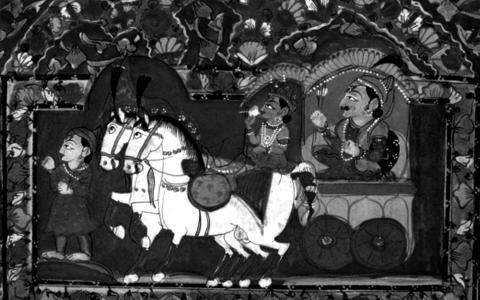
While Krishna praises the trait of detachment and contentment, he emphasizes the need for hard work. At the risk of sounding paradoxical, he says in the Gita – I’ve achieved everything, yet I continue to work (BG 3.22); If I fail to work tirelessly, humans will blindly follow my example and sit idle (BG 3.23); If I didn’t work, the worlds would perish and I would become the cause of chaos (BG 3.24).
Why does he say this? Krishna knows that if he...
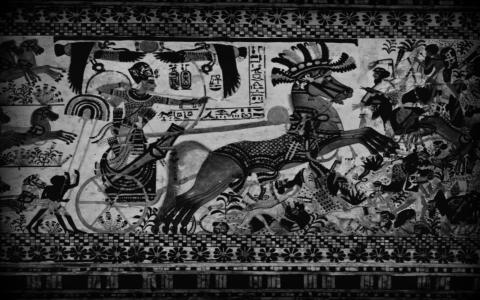
गोविन्द-नन्दनतया च वपुःश्रिया च मास्मिन्नृपे कुरुत कामधियं तरुण्यः । अस्त्री-करोति जगतां विषये स्मर स्त्रीः अस्त्रीजनः पुनरनेन विधीयते स्त्रीः ॥
Sriharsha, the great exponent of Sanskrit poetry in 12th century C.E., was erudition and creativity personified. Srihira and Mamalladevi were his parents. His Naishadhiya-charitam is one among the pancha maha-kavyas (five epic-poems).
In the days of yore, engaging in debates used to be the favourite...
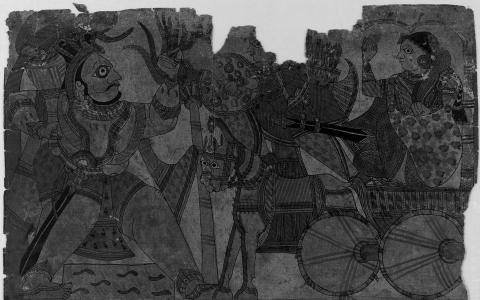
The Mahabharata was also known as Jaya (victory). By using the word ‘जय,’ Vedavyasa speaks of kshaatra and valor. There, both dharma and adharma are permanent, pre-eminent. When Vyasa calls Duryodhana as “दुर्योधनो मन्युमयो महाद्रुमः” and Yudhishthira as “युधिष्ठिरो धर्ममयो महाद्रुमः” (MB 1.1.65-66), the implied meaning is ‘a kshatriya should be established in dharma and should gently nurture the world like a great tree.’
According to the...
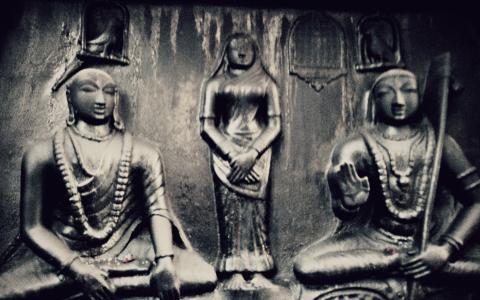
In the tenth episode (The Edge of Forever) of the TV series Cosmos, speaking about Hinduism, Carl Sagan says, “Here, there is a tradition of skeptical questioning and unselfconscious humility before the great cosmic mysteries.” He was most intrigued by the famous creation poem in the Rigveda Samhita known popularly as the ‘Nasadiya Sukta.’ A short poem of only seven verses, it discusses the great mystery of creation. After suggesting a scheme...

Bahinabai, the renowned folk poetess, lived in a small village in Maharashtra. She was illiterate and unschooled but was a prolific composer of poetry (mostly set to the folk poetic meter called ovi). While she composed all these poems orally, her son Sopandev wrote them down and got them published with the help of the Marathi polymath P. K. Atre.
During the days Sopandev was student in Pune, he once made a visit to his mother’s village. With...
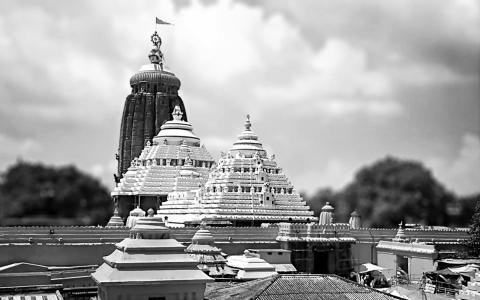
ऐश्वर्य-मद-मत्तोऽसि मामवज्ञाय वेत्स्यसे । उपस्थितेषु बौद्धेषु मदधीना तव स्थितिः ॥
In Sanskrit, a huge corpus of literature is dedicated to shastra. No branch of knowledge that has interested the human mind has been deprived of expression in it. The uniqueness of Indian knowledge systems is that they invariably evolve into a darshana (philosophy). Nyaya (Epistemology) and Vaisheshika (Ontology) are two such schools of philosophy. The culmination...
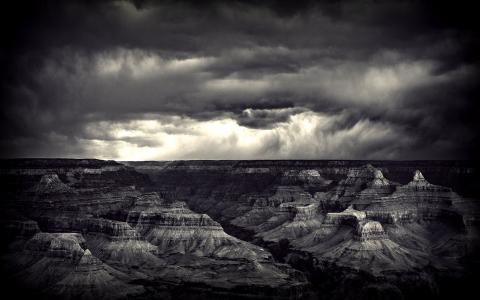
The uniqueness of sanatana dharma is its universality. Three cardinal features confer upon it its universal character. These three are however not mutually exclusive; they, in fact, nourish one another.
1. The Natural Foundation
न वा अरे देवानां कामाय देवा: प्रिया: भवन्ति
आत्मनस्तु कामाय देवा: प्रिया: भवन्ति ।
न वा अरे वेदानां कामाय वेदा: प्रिया: भवन्ति
आत्मनस्तु कामाय वेदा: प्रिया: भवन्ति ।
"Not for the sake of the gods, my beloved, are the...
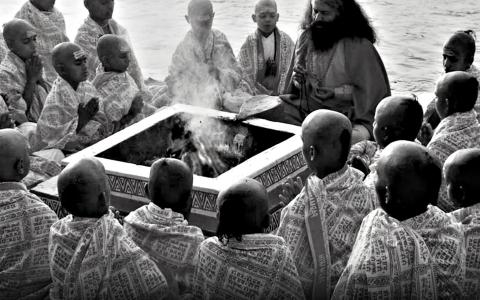
Often I come across people who say things like: “I’m not religious but I’m spiritual,” “I like the philosophy of Hinduism but I don’t know why we have all these rituals,” or “If we can rid our religion of all superstitions and rituals, then it would become relevant.” I must confess that at one point of time, I too had similar thoughts.
I grew up watching my grandmother clean the floor with cow-dung after we finished eating and the banana leaves...

The Sanskrit Podcast hosted by Shoba Narayan and featuring Dr. Shankar Rajaraman, where he discusses the relevance of poetry in the modern world.
One the one hand, poetry or any art should not need any justification. Poetry, said Wordsworth, is emotion recollected in tranquility. It is a way to compress emotion and aesthetics through words. We get all that. Poetry is important. Yet, when was the last time you read poetry? How do schools and...
